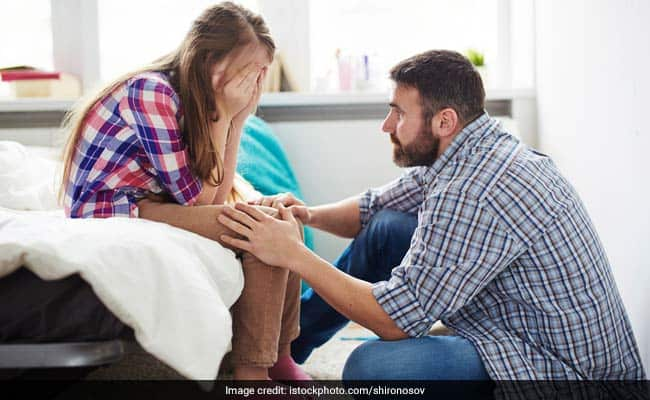The Covid-19 pandemic has affected children's mental health in many ways. Making a few changes at home can help kids stay mentally fit during these tough times.

A rise in symptoms of anxiety and depression has been observed in kids during the ongoing pandemic
The COVID-19 pandemic has been a story of death and devastation beyond compare in most peoples living memory. By any yardstick, it has been an unprecedent global disaster. Unlike most other disasters that are usually time bound, this one is still ongoing after more than a year. The impact, as a result, has been deep and multifarious; destroying lives and families, breaking down infrastructures and institution and whatnot.
Like any other disaster, it is the children and youth that have got affected too. Reports from post COVID WHO surveys, done in October 2020, indicate that the maximum rise in symptoms of anxiety, depression, substance misuse and suicidal behaviours have been in the youth. It is well established in mental health literature that it is the young who bear the brunt of traumatic life events. Trauma here is an event or a life condition which could break the emotional foundation of people, shake the very belief system and relationships that make our world. Who would be most vulnerable in such a situation but the young whose emotional stability and sense of self is only forming, when they are already grappling with issues of trust and belongingness?
While the first wave of COVID was somewhat distant from many of us, where sticking to safety protocols would indeed keep us safe, the second wave has entered our homes and lead to unbearable loss for most people. The fear and anxiety about imminent disease and death has consumed our lives and stripped us of agency or control. Reeling from one crisis to another and firefighting constantly, we have lost track of our children's needs. There has been a profound impact on the wellbeing and mental health of our kids. We have seen a sharp and exponential rise in depression, anxiety disorders, post traumatic stress disorder, eating disorders, substance misuse, screen addiction and suicidal behaviours; hundreds of families and young people have reached out to us in utter helplessness and despair.
Not surprisingly, few have stopped to think of the consequences of the lockdown on children's growth and development. The fact that the youngest ones need their space to play and interact with other kids to develop their language and social skills, that in the middle years it becomes necessary for kids to have hobbies and avenues to develop skills on the sports field, music or art, and that during teenage years they want agency to make meaningful connections with peers and the world outside, has somehow slipped our national consciousness. Needless to say, that the deprivation of these normative spaces and rites of passage can have a lasting detrimental effect on children.
One can't even begin to imagine the consequences on children whose families have contacted Covid-19, have been forced into isolation, have had parents admitted to hospital or have experienced death from close. Witnessing untimely death of loved ones, the helplessness of being separated from parents and the fear of abandonment can cause wounds that can take a lifetime to heal, especially in those who found no support from family or friends during such traumatic times.
Yet there is learning in this chaos. It is heartening to see that groups of young people, from schools and colleges, have formed collectives and are stretching themselves to support each other.
Mental health struggles are not just confined to a select few, but can affect anyone who is going through extreme stress. At a time when there is relentless use of screens, for necessity or escape, it could provide us insights about the influence of gadgets and social media on the lives of our children. It might also help us discover the resources and capabilities of our young people, and learn from the way they are contributing in this crisis. Indeed, it may enthuse us to collaborate with our youth to create a new normal.
(Dr Amit Sen is a Child and Adolescent Psychiatrist at Children First)
Disclaimer: The opinions expressed within this article are the personal opinions of the author. NDTV is not responsible for the accuracy, completeness, suitability, or validity of any information on this article. All information is provided on an as-is basis. The information, facts or opinions appearing in the article do not reflect the views of NDTV and NDTV does not assume any responsibility or liability for the same.
DoctorNDTV is the one stop site for all your health needs providing the most credible health information, health news and tips with expert advice on healthy living, diet plans, informative videos etc. You can get the most relevant and accurate info you need about health problems like diabetes, cancer, pregnancy, HIV and AIDS, weight loss and many other lifestyle diseases. We have a panel of over 350 experts who help us develop content by giving their valuable inputs and bringing to us the latest in the world of healthcare.














